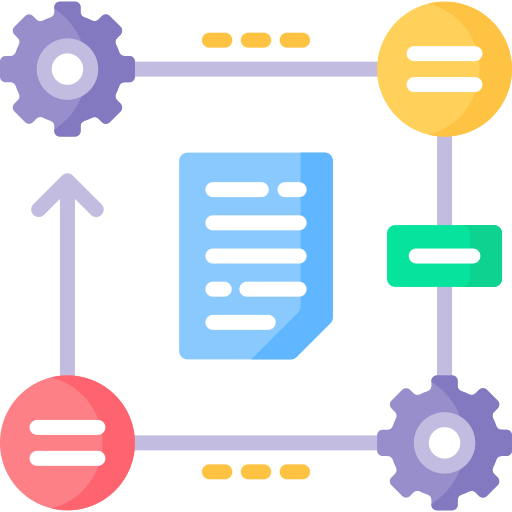
Time Management Plan: Discover the Best System for Productivity
Time management is not merely about squeezing more tasks into each day; it’s about prioritizing effectively, maximizing productivity, and minimizing stress. At the core, time management revolves around the efficient allocation of our most precious resource: time.
It’s about making choices regarding how we utilize each moment to accomplish our goals, both personally and professionally. By implementing a structured approach to managing time, individuals can lead more fulfilling lives.
Central to any effective time management plan are the four Ps: Prioritize, Plan, Perform, and Perfect. We’ll come to that later. Now, let’s guide you through the tools and strategies necessary to take control of your time and elevate your performance to new heights.
What is a Time Management Plan?
Time management plan is the organization and planning of time allocation across various activities. When executed effectively, it enables one to work smarter, not harder, achieving more in less time, even amidst tight deadlines and high pressure situations. Time management planning is essential for individuals from all walks of life, irrespective of their profession or personal pursuits.
So, why is time management planning essential for everyone? Let’s discuss.
Benefit of Time Management Plans

Optimized Productivity
With a well-defined time management plan in place, individuals can prioritize work based on importance and urgency. By planning effectively, they can streamline workflows, minimize distractions, and focus their efforts on tasks that align with their goals.

Reduced Stress and Overwhelm
Developing and adhering to a time management plan, individuals can break down large tasks into manageable chunks, set realistic deadlines, and create a sense of control over their workload, thereby reducing stress and improving overall well-being.

Improved Time Allocation
Time is a precious resource, and how we choose to allocate it can significantly impact our success and fulfillment. A time management plan helps individuals identify their priorities and designate time according to what matters most to them.

Enhanced Efficiency and Effectiveness
Planning for time management allows individuals to identify inefficiencies & implement strategies to enhance effectiveness. By analyzing how they currently spend their time, individuals can identify areas where improvements can be made.

Ability to Realize Goals
A well-crafted time management individual can make steady progress towards realizing their goals. Whether it’s advancing in a career, mastering a skill, or achieving personal milestones, effective time management increases the likelihood of success.

Increased Sense of Accomplishment
Utilizing a time management plan fosters a greater sense of accomplishment as individuals witness their efforts translating into tangible results. This sense of accomplishment boosts morale and motivates individuals to continue striving towards their goals.
Strategies for Creating an Effective Time Management Plan
Crafting an effective time management plan requires strategic thinking and deliberate actions. Let’s delve into the strategies that can help individuals optimize the use of time and enhance their productivity:

Prioritize Goals Effectively
Prioritizing goals effectively lies at the heart of any successful time management plan. By carefully evaluating the importance and urgency of each goal, individuals can determine where to allocate their time and resources most efficiently. This strategic prioritization ensures that they focus their efforts on tasks that align with their overarching objectives, thereby maximizing their productivity and progress towards achieving their goals.

Assign a Deadline for Task Completion
Setting deadlines for task completion is a powerful strategy for managing time effectively. Deadlines create a sense of urgency and accountability, motivating individuals to stay focused and productive. By establishing realistic deadlines for each task within their time management plan, individuals can ensure that they allocate their time efficiently and make steady progress towards their goals.

Take a Break Between Tasks
While it may seem counterintuitive, taking breaks between tasks is crucial for maintaining productivity and mental clarity. Breaks allow individuals to recharge their energy levels, alleviate mental fatigue, and enhance overall focus and concentration. By incorporating short breaks into their time management plan, individuals can sustain high levels of productivity over extended periods without experiencing burnout or diminishing returns.

Organize Yourself
Effective organization is key to successful time management planning. By establishing systems and routines for organizing tasks, schedules, and resources, individuals can streamline their workflows and minimize wasted time. Whether it’s maintaining a tidy workspace, utilizing digital tools for task management, or creating daily to-do lists, organized individuals can navigate their responsibilities more efficiently and effectively.

Eliminate Unnecessary Tasks/Activities
Not all tasks and activities are essential or contribute to goal achievement. As such, it’s essential to identify and eliminate unnecessary tasks or activities that detract from productivity and time management efforts. By decluttering their schedules and focusing only on tasks that align with their priorities, individuals can free up valuable time and energy to invest in activities that yield the greatest returns.

Plan Ahead
Finally, effective time management planning involves looking ahead and anticipating future commitments and responsibilities. By proactively planning for upcoming tasks, deadlines, and events, individuals can avoid last-minute rushes and reduce stress. Whether it’s creating weekly or monthly schedules, setting reminders, or allocating time for long-term projects, planning ahead ensures that individuals stay on track and in control of their time.
Use a Monitoring Tool
Employee monitoring software offers a comprehensive solution to the challenges of time planning. By providing insights into employees’ activities and behavior, these tools empower individuals and organizations to optimize their time management strategies effectively. Here’s how employee monitoring software can enhance time planning:
Activity Tracking and Analysis
It enables organizations to track employees’ activities in real-time, gaining valuable insights into how time is spent throughout the workday. By analyzing data on app usage, website visits, individuals can identify time-wasting activities and adjust their workflows accordingly.

Time Allocation and Resource Management
With employee monitoring software, individuals can allocate their time and resources more effectively. By setting goals, deadlines, and priorities within the software, employees can create a structured plan for their day, ensuring that essential tasks are completed on time.

Performance Evaluation and Feedback
This software facilitates performance evaluation and feedback, allowing managers to assess employees’ productivity levels. By identifying areas of inefficiency or time management issues, individuals can receive personalized support to enhance their time planning skills.

Accountability and Motivation
By promoting transparency and accountability, the software motivates individuals to stay focused and productive. Knowing that their activities are being monitored encourages employees to adhere to their time management plans more effectively.

Remote Work Support
In an increasingly remote work environment, employee monitoring software is invaluable for maintaining productivity. By providing remote access to time tracking and performance data, individuals can stay connected and accountable, regardless of their location.
Check out the Time & Attendance tracking feature offered by an employee monitoring software.
The Cost of Poor Time Management
Effective time management is also about avoiding the negative consequences that can arise from poor planning and organization. Let’s explore the detrimental effects of poor time management and how they can impact individuals’ lives:

Poor Planning Skills
Lack of proficiency in planning for time management can lead to disorganization and inefficiency. Without a clear roadmap for how to allocate time and resources, individuals may find themselves overwhelmed by tasks and deadlines, resulting in chaos and confusion in their schedules.

Poor Workflow
Poor time management often results in a messier workflow. You might keep getting interrupted, miss deadlines, and rush through tasks. This can disrupt productivity and hinder progress on tasks, ultimately leading to poor outcomes and frustration for individuals striving to accomplish their goals.

Loss of Control
Individuals who struggle with time management may feel as though they have lost control over their schedules and responsibilities. Without a structured plan in place, they may find themselves reacting to events and circumstances rather than proactively managing their time and priorities.
Discover how an employee monitoring software helps in managing time and meeting deadlines. Checkout our blog – How Employee Monitoring Software is Shaping the New Normal.

Being Unmotivated
Poor time management can sap individuals’ motivation and enthusiasm for their work. When tasks pile up, deadlines loom, and progress is slow, it’s easy to feel overwhelmed and demotivated. This lack of motivation can further exaggerate the problem, leading to a cycle of procrastination and decreased productivity.

Poor Quality of Work
Rushing to complete tasks due to poor time management can compromise the quality of work produced. When individuals are pressed for time, they may cut corners, overlook important details, or rush through tasks without giving them the attention they deserve. This can result in errors, omissions, and overall subpar quality of work.

Poor Reputation
Poor time management can damage individuals’ reputations, both professionally and personally. Employers, colleagues, clients, and peers may perceive them as unreliable, disorganized, or incompetent, which can have long-lasting consequences for their career prospects and relationships.
The Four Ps of Time Management
For optimal time management, understanding the Four Ps—Prioritize, Plan, Procrastinate, and Persevere, serves as a guiding compass for navigating the complexities of our busy lives. These pillars structure our days, weeks, and months in a manner that measures productivity and fosters continuous improvement.
Let’s delve into each P and explore its significance:
Prioritize
Prioritizing tasks involves identifying what matters most and allocating time and resources accordingly. By prioritizing tasks based on their importance and urgency, individuals can ensure that they focus their efforts on activities that align with their goals and yield the greatest returns.
The benefits of prioritization include:
 Increased productivity
Increased productivity
 Reduced stress
Reduced stress
 Stay organized
Stay organized
 Clarity & direction in tackling daily challenges
Clarity & direction in tackling daily challenges
 Better manage your time
Better manage your time
Plan
Planning is the foundation upon which successful time management is built. A solid plan provides individuals with a roadmap for how to allocate their time and resources to accomplish their goals. By creating schedules, setting deadlines, and outlining actionable steps, individuals can streamline their workflows and minimize wasted time.
The benefits of planning include:
 Improved efficiency
Improved efficiency
 Enhanced organization
Enhanced organization
 Ability to stay on track
Ability to stay on track
 Focused amidst distractions
Focused amidst distractions
 Save time and use the time for important tasks
Save time and use the time for important tasks
 Be more productive & effective
Be more productive & effective
Procrastinate
Procrastination is the enemy of effective time management. It’s the tendency to delay or postpone tasks, often leading to stress, missed deadlines, and decreased productivity. Overcoming procrastination requires self-discipline and commitment to tackling tasks head-on, even when the temptation to procrastinate is strong.
Benefits of Avoiding Procrastination:
 Increased Productivity
Increased Productivity
 Improved Focus
Improved Focus
 Sense of Accomplishment
Sense of Accomplishment
 Extra time for other works
Extra time for other works
 It can help to reduce stress
It can help to reduce stress
 Improve self-confidence
Improve self-confidence
Persevere
Perseverance is the fuel that drives individuals to overcome obstacles and stay committed to their goals, even in the face of challenges and setbacks. In the realm of time management, perseverance involves staying disciplined and resilient in the pursuit of one’s objectives. Whether it’s sticking to a schedule, overcoming procrastination, or navigating unforeseen obstacles, perseverance enables individuals to stay focused, motivated, and resilient in the pursuit of their goals.
The benefits of perseverance include:
 Increased resilience
Increased resilience
 A sense of accomplishment
A sense of accomplishment
 Ability to overcome adversity
Ability to overcome adversity
 Achieve long-term success
Achieve long-term success
 Build self-confidence
Build self-confidence
In essence, mastering the Four Ps of time management—Prioritize, Plan, Procrastinate, and Persevere – empowers individuals to take control of their time, maximize productivity, and achieve their goals with clarity, efficiency, and resilience. By embracing these principles and integrating them into their daily routines, individuals can unlock their full potential and create a pathway to success in all aspects of their lives.
The Crucial Role of Time Management
Time management isn’t just a personal endeavor – it’s also a critical component of organizational success. In today’s fast-paced business landscape, where every minute counts, effective time management can make the difference between thriving and merely surviving. Let’s explore why time management is essential for organizations and how implementing a time management plan can drive productivity and success:

Enhancing Efficiency and Productivity
By planning for time management, organizations can optimize their processes, minimize wasted time, and ensure that every minute is spent productively, leading to increased output and profitability.

Meeting Deadlines and Deliverables
By implementing a time management plan, organizations can ensure that the works are completed on time, within budget, and to the expected quality standards, fostering trust and confidence among clients and stakeholders.

Maximizing Resources
With proper time management, organizations can allocate resources strategically, ensuring efficient utilization. By planning for time management, they can also prioritize tasks based on available resources, ultimately maximizing productivity & minimizing waste.

Fostering Innovation and Growth
By managing time effectively, organizations can carve out dedicated time for brainstorming, problem-solving, & strategic planning. This allows teams to explore new ideas, identify opportunities for improvement, & drive innovation within the organization.

Enhancing Employee Engagement and Satisfaction
When employees feel empowered to manage their time effectively, they experience greater autonomy and control over their work, leading to increased job satisfaction & motivation. By providing the right tools and support, organizations can foster a positive work environment.
In Summary
Ultimately, investing time and effort into developing and adhering to a time management plan creates a fulfilling and balanced life.
Remember, by managing time effectively, individuals can create space for what truly matters. It can be pursuing passions, nurturing relationships, or achieving professional milestones. With the right time management plan in place, they can unfold the secrets to productivity and success.
Frequently Asked Questions
- Set reminders for all your tasks
- Create a daily planner
- Give each task a time limit
- Block out distractions
- Establish routine
Comments